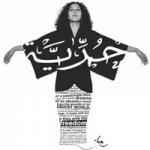Laleh Bakhtiar, a scholar and the first woman to present a critical translation of the Quran in any language, explains Islam’s basic tenets toward women.
Islam came with a message that was revolutionary at the time (610 AD). It uplifted the status of the poor and underprivileged in society. For women, this meant an end to female infanticide - a common practice in Mecca in those days - and claimed equality of the sexes in stature and worship. While these may not seem remarkable claims nowadays, they resulted in a transformation of consciousness and lives within the early Muslim community. There are dozens of strong, dignified and independent women in early Islamic history that have become household names and role models for generations of Muslim women. The women of Muhammad’s family have not faded into obscurity – the Prophet’s wife, Khadija, was not only the first convert to Islam (a woman!) but also a financially independent businesswoman.
Women’s equal rights in Islam begin immediately in the Quran’s Creation Story. I want to note here that Islam’s holy book, the Quran, has many similar stories to those found in the Torah and the Bible. Muslims believe in many of the same prophets who are mentioned in the Jewish Scripture as well as the New Testament: Abraham, Moses, Jesus, Mary, etc.
Islam is similar to Christianity in the belief in Jesus as the Messiah who had a miraculous birth and who will return at the end of time. Muslims also hold dearly the belief in the Gospel.In fact, Islam considers itself to be a universal religion that is the third dimension of the Judeo-Christian-Islamic monotheistic tradition founded by Abraham. Islam, similar to Judaism, is an uncompromising monotheism that incorporates a Divine Law that was given to Moses. In Judaism it is called the Torah (the first five books of the Hebrew Scripture) and in Islam it is called the Shariah, laws developed from the revelation of the Quran to Prophet Muhammad.
Despite these similarities, there are some distinct differences. One of those differences is in the Creation Story. In Islam, the idea of “original sin” doesn’t exist. Adam and Eve both are responsible for eating from the forbidden fruit, for not remembering God’s words to them. The Quranic story is very clear about their joint responsibility. And when they repent, God forgives them for what in some traditions is called “original sin.”
The Quran goes on to praise women like the Virgin Mary and the wife of Pharaoh who prayed to be saved from Pharaoh’s tyranny. The Queen of Sheba is mentioned in her political role as a leader of her country. There are multiple mentions of women as mothers, daughters and wives, and, particularly, of women as individuals who have the right to education, the right to keep whatever she earns for herself and the right to the Hereafter.
As a universal religion, Islam has divinely revealed responses to regulate all aspects of human behavior.
Marriage:
In Islam, marriage is not seen as a sacred covenant but as a mutually beneficial contract between a man and a woman. The stress is on, “mutually beneficial.” Men and women were created to provide solace for one another.
In marriage, women have the right to choose her own husband. She is free to require her husband-to-be to sign a pre-nuptial agreement. The pre-nup not only includes any money she will receive in the event of a divorce but also contains any Islamic rights she wishes to enforce for herself: the right to a divorce, the right to keep custody of her children if there is a divorce, the right to continue her education, the right to work, the right to wear a head covering or to not wear a hear covering, the right to be the one and only wife – forbidding her husband to take any other wife while he is married to her -- or whatever other issues most concern her.
If a woman chooses not to require a pre-nuptial agreement, she will have to follow the Divine Law in regard to any disagreements that may arise between herself and her husband in the future.
Inheritance:
Much is made about the ruling that females inherit half of what males inherit. However, this is the case only if there is no last will and testament. In such situations, men inherit more because they are then required to use their wealth on the female members of their family who have no means of support.
Muslim women often enjoy living with the motto: “His money is our money while my money is my money.”
Head Covering:
Women decide for themselves whether or not to cover. Perhaps the best Quranic verse to describe a woman’s rights under Islam is: “There is no compulsion in religion.” (2:256). That is, it is up to a person’s free will to choose what to accept as a religious obligation. For some it is the covering of their hair, for others the emphasis is on the inner development of ethical values.
In other words, the veil is the wrong thing to be stuck on when discussing Muslim women’s rights in Islam. In fact, for many cases, the Quran reinforces a Muslim woman’s self-esteem. And, in many cases, Muslim women worldwide are using the Quran to reassert their rights – rights that have been taken away from them through patriarchal interpretations and laws.
In fact, when people say, “Islam oppresses women,” I respond, “How can it oppress women when there is no compulsion in Islam?” A women is able to exercise her free will to choose what she is religiously responsible for – the only criterion is that she not use her free will in pursuit of her own desires for then her will would be competing with God’s will, thus she would be creating a partner with God. This is the only sin that is not forgiven in Islam.
Equality of Language in the Quran:
Muslims believe the Quran to be the actual speech of God handed down through Mohammed between 610 and 632 CE. The original text is in Arabic. The Quran contains 114 chapters on a variety of different topics, all meant to instruct humanity on how to live. God’s guidance through the Quran always is addressed to his believers, both men and women. Both are addressed equally. Both are required to follow the same laws. Both must live by the same standards. In other words, if the Quran is God’s words and God addresses both men and women equally, then both are the same in God’s eyes.
Why, then, do we see that Muslim women throughout the forty-nine Muslim majority states are still being oppressed? The oppression does not come from Islam, but from laws made, in many cases, by Muslim men. Why, for instance, are women not able to drive in Saudi Arabia, yet they can drive in the other forty-eight Muslim majority states? Why is there a law in some majority Muslim countries such as Saudi Arabia and Iran that women must cover their hair so that it becomes a matter of state law and not free choice?
The freedom of will granted by Islam carries a great responsibility. Women must educate themselves on their rights. Once they understand their rights, they must come together in order to obtain and reclaim their God-given rights and actively pursue the development of a fair and just community of believers.
I am heartened to see so many Muslim women who are at the forefront of change, wherever they happen to live. While adhering to basic Islamic principles, they have found their voice and continue to actively participate in their society in order to further the understanding of the positive role they play in their Muslim community.




